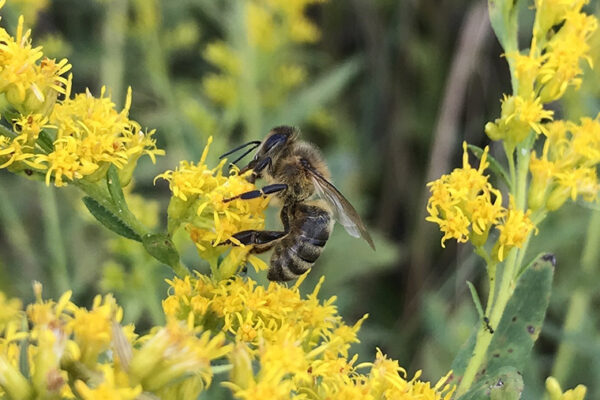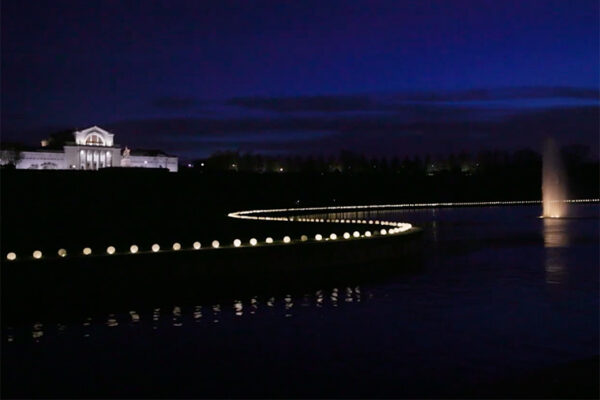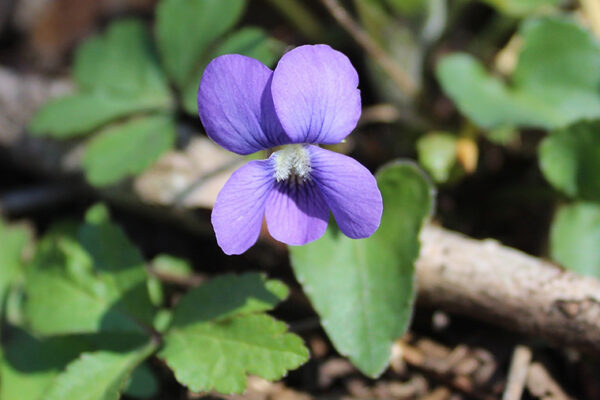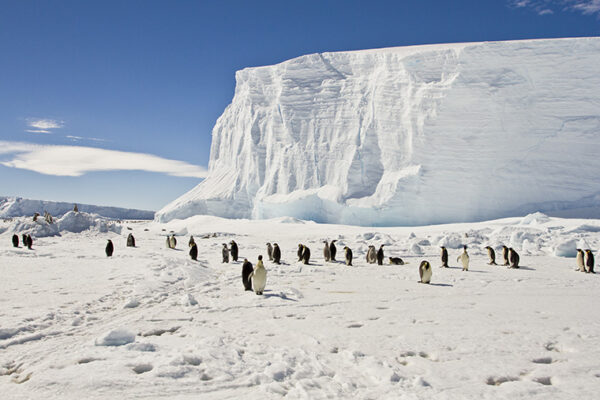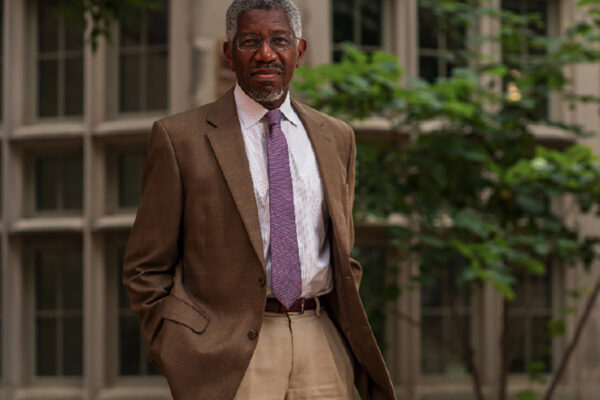Urban bees collaboration wins USDA grant
A team that received early support from the Living Earth Collaborative was awarded a $633,000 grant from the U.S. Department of Agriculture to evaluate pollination in orchards across the city of St. Louis. They will examine how factors such as human population density, socioeconomic status, soil type and surrounding vegetation impact insect numbers and fruit yield.
‘Requiem of Light’
It’s a grim milestone. More than 1 million Americans have died due to COVID-19. In this video, Rebecca Messbarger, director of medical humanities in Arts & Sciences, discusses “Requiem of Light,” a citywide memorial that she conceived and organized for the thousands of St. Louisans lost to the pandemic.
Climate change is affecting when, how violets reproduce
Living Earth Collaborative postdoctoral fellow Matthew Austin published new research finding that climate change is affecting how violets reproduce.
Geoscientists to study structure and properties of Antarctic lithosphere
Geoscientists Walid Ben Mansour and Douglas A. Wiens in Arts & Sciences received a grant from the National Science Foundation to determine the thermal and compositional structure of Antarctica using seismic, gravity and topography data and petrological modeling.
WashU Experts: Supreme Court decision will transform American life, politics
Experts from Washington University in St. Louis offer perspectives on the Supreme Court’s decision to overturn Roe v. Wade and the impact it will have on American law, people and politics.
Asteroid samples offer insights into solar system evolution
Alex Meshik, research professor of physics and a faculty fellow in the McDonnell Center for the Space Sciences in Arts & Sciences, won a $690,521 NASA grant.
Early to serve as interim CRE2 director
Gerald Early, the Merle King Professor of Modern Letters in Arts & Sciences, will serve as interim director of the Center for the Study of Race, Ethnicity & Equity at Washington University in St. Louis, effective July 1. Hedwig Lee and William Acree, both in Arts & Sciences, are stepping down as co-directors.
OHMB recognizes Barch with Glass Brain Award
The Organization for Human Brain Mapping has awarded its Glass Brain Award to Deanna Barch, of Arts & Sciences and the School of Medicine, in recognition of her influential work on the function of the human brain.
Interlocking rings unlock new material properties
Researchers working with Jonathan Barnes, assistant professor of chemistry in Arts & Sciences, published new research showing how molecules with interlocking ring architectures can be functionalized and incorporated into three-dimensional polymer networks and materials.
A journey of resilience and healing
All the Flowers Kneeling, the debut poetry collection of Paul Tran, MFA ’19, takes readers on a transformative ride.
View More Stories
